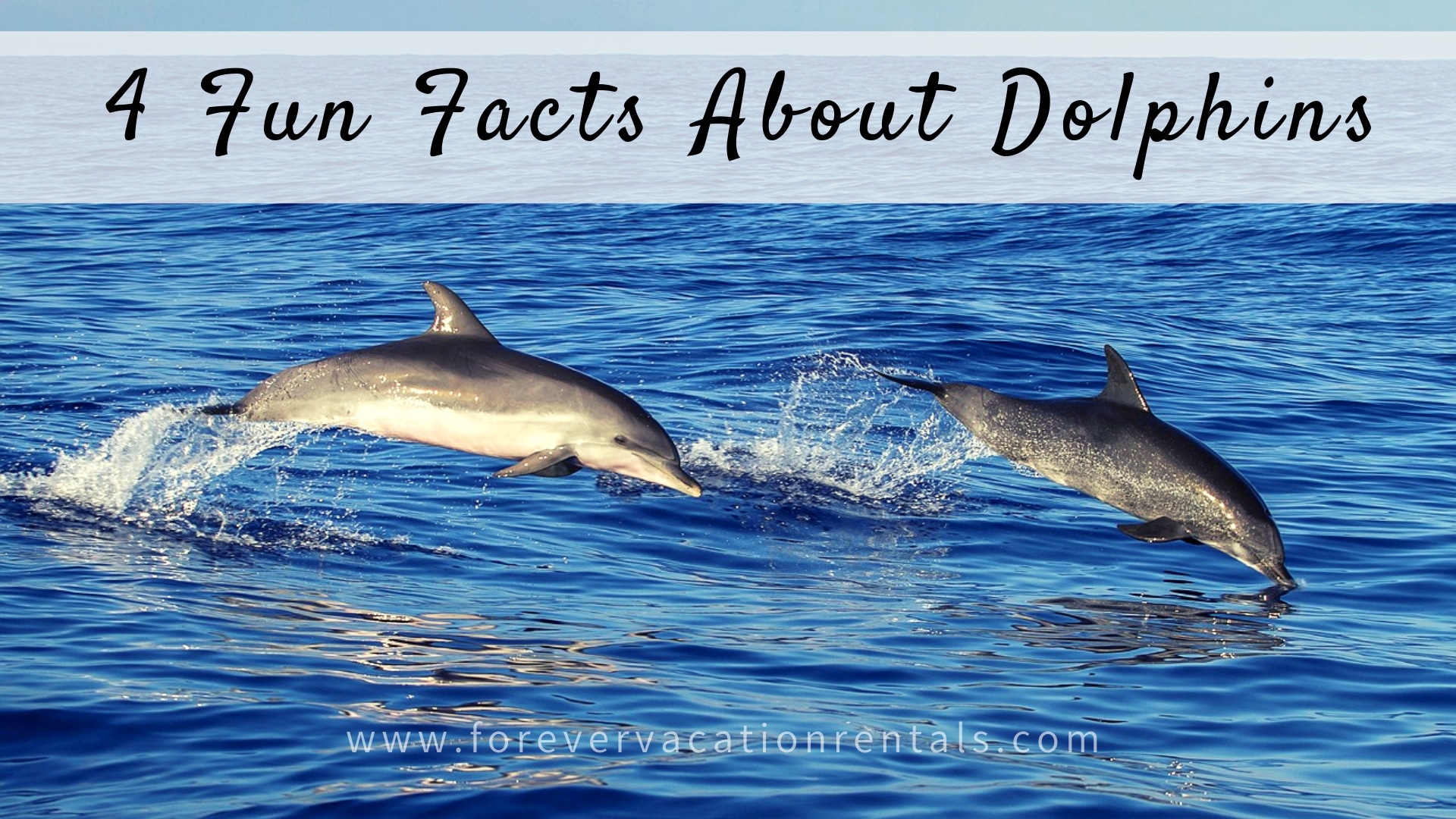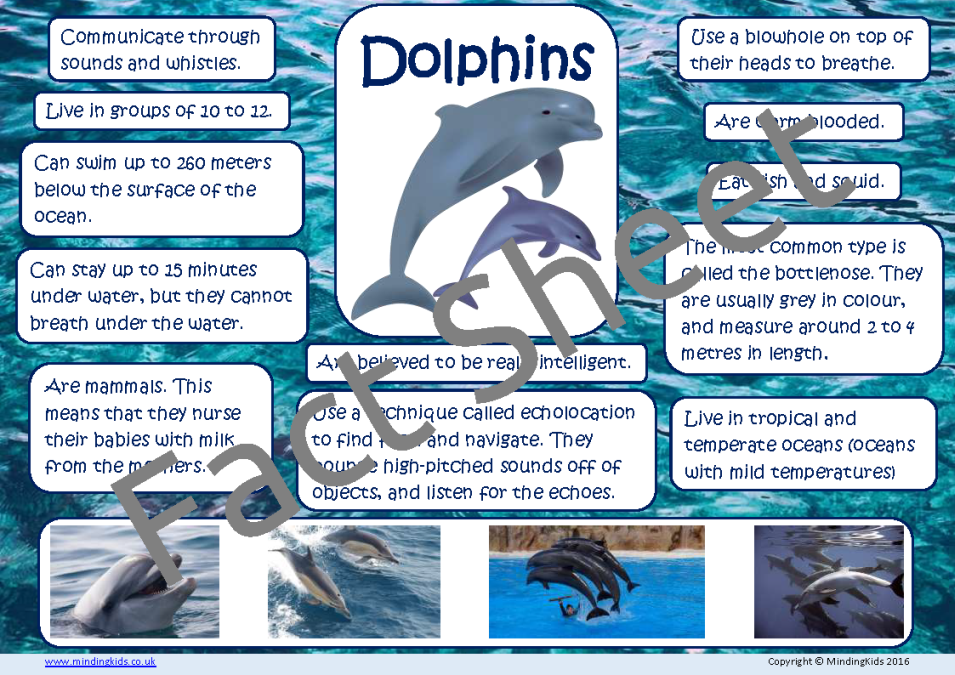Introduction Dolphin Details: Nature's Intelligent Marine Mammals
Dolphins, often related to as one of the ocean's most smart occupants, show a fascinating variety of actions and social frameworks that require closer assessment. With over 40 distinctive species, these marine mammals not just show exceptional interaction skills and complicated social communications yet likewise have advanced cognitive capabilities that test our understanding of non-human intelligence.
Dolphin Types Variety
Dolphins are a varied team of marine animals coming from the household Delphinidae, which incorporates over 40 unique types. This family members consists of popular varieties such as the usual bottlenose dolphin (Tursiops truncatus), the orca or killer whale (Orcinus orca), and the risso's dolphin (Grampus griseus) Each species shows one-of-a-kind physical attributes, behaviors, and adaptations that allow them to prosper in different marine atmospheres.
Dolphin types vary substantially in dimension, varying from the little Maui's dolphin (Cephalorhynchus hectori) at around 1.2 meters to the orca, which can reach lengths of up to 9 meters. Their pigmentation additionally differs, with some species displaying striking patterns that aid with camouflage or social signaling. In addition, dolphins live in varied environments, from seaside regions and tidewaters to the open sea, showcasing their adaptability.
Study right into dolphin varieties variety highlights the environmental relevance of these mammals, as they play important functions in marine environments. Recognizing the numerous species is essential for preservation efforts, as several face threats from environment loss, climate, and air pollution change, requiring targeted protection measures to guarantee their survival.
Social Frameworks and Actions
The intricacy of dolphin types is mirrored in their intricate social structures and actions. Dolphins are understood for their highly social nature, usually developing teams called shucks, which can vary from a few people to over a hundred. These vessels are commonly made up of family members, showcasing a matrilineal structure where women play a main function in nurturing and keeping social bonds spawn.

Additionally, some varieties of dolphins, such as orcas, demonstrate complicated social behaviors that can consist of sub-pods or clans with unique social practices. These social structures are critical for the survival and health of dolphin populations, as they promote communication, participation, and the transmission of knowledge throughout generations. Comprehending these social dynamics is vital for conservation efforts and the defense of their all-natural habitats.
Interaction Methods
Among the numerous approaches of interaction, dolphins make use of an advanced array of communication techniques that assist in social cohesion and sychronisation within their vessels. These techniques encompass vocalizations, body movement, and echolocation, each serving unique functions in their social interactions.
Dolphins create a large range of clicks, whistles, and pulsed noises, which offer as their main singing interaction. Each dolphin has a distinct trademark whistle, akin to a name, that permits people to identify one another also in huge groups. These articulations can share various messages, such as signaling others to threat or collaborating team movements during hunting.
Along with articulations, body movement plays an essential function in dolphin interaction. Dolphin stances, such as leaping, rotating, and even refined changes in alignment, communicate emotional states and purposes. For example, hostile displays might prevent competitors, while lively habits can improve social bonds.
Echolocation, a biological sonar system, further aids in navigation and hunting. By emitting acoustic waves and analyzing the returning echoes, dolphins can locate prey and obstacles effectively, demonstrating their remarkable adaptability in complex marine settings. Jointly, these interaction methods underscore the intricate social lives of dolphins, highlighting their knowledge in browsing their undersea world.

Intelligence and Problem Addressing
Acknowledged for their innovative communication abilities, dolphins likewise display exceptional knowledge and analytical abilities that better improve their social communications. Their cognitive capabilities are confirmed by their capacity to learn intricate tasks, comprehend abstract concepts, and adjust to different environmental difficulties. Study has shown that dolphins can solve intricate challenges, showing not just their cognitive versatility but likewise their ability for preparation and foresight.
Dolphins commonly participate in cooperative searching methods, showcasing their capability to function as a cohesive system. This synergy calls for advanced problem-solving skills, as they need to analyze their environment, identify prospective target, and coordinate their actions to accomplish a typical objective. Additionally, dolphins have been observed using tools, such as marine sponges, to safeguard their noes while foraging on the sea flooring, more exhibiting their innovative analytical capabilities.

Human-Dolphin Communications
Human-dolphin interactions have astounded scientists and lovers alike, highlighting the facility partnership between these intelligent aquatic creatures and people. From ancient times, dolphins have been shown in art and folklore, representing harmony and intelligence (Dolphin Facts). Modern communications range from scientific research study and preservation initiatives to entertainment tasks like dolphin seeing and swimming with dolphins
Research has demonstrated that dolphins have progressed social frameworks and communication abilities, which promote their interactions with human beings. These experiences frequently promote psychological links, with numerous individuals reporting feelings of delight and empathy during such experiences. However, it is vital to come close to these communications with care, as human tasks can interrupt dolphin actions and habitats.
Conservation initiatives increasingly concentrate on promoting responsible interactions, ensuring that human enthusiasm does not jeopardize dolphin welfare. Education programs intend to elevate understanding about the environmental significance of dolphins, emphasizing the demand for lasting methods. By understanding the complex characteristics of human-dolphin interactions, we can foster a considerate coexistence that profits both varieties and protects aquatic environments for future generations. Inevitably, these communications function as a suggestion of the extensive links that can exist in between human beings and the environment.
Verdict
In recap, dolphins exemplify amazing intelligence and flexibility see this site within varied aquatic atmospheres. Continued research study and awareness are necessary for promoting a deeper understanding of dolphins and promoting their well-being in an increasingly threatened ecological community.
Dolphin species differ significantly in dimension, varying from the small Maui's dolphin (Cephalorhynchus hectori) at around 1.2 meters to the whale, which can get to sizes of up to 9 meters. Dolphins present a variety of social interactions, consisting of grooming and physical get in touch with, which serve to reinforce partnerships and develop hierarchies.
Acknowledged for their innovative interaction skills, dolphins also exhibit remarkable knowledge and analytical capabilities that even more boost their social communications. Modern interactions range from clinical research study and preservation efforts to entertainment tasks like dolphin swimming and seeing with dolphins.
Research study has demonstrated that dolphins have progressed social structures and communication skills, which facilitate their communications with people.
Comments on “Fascinating Dolphin Facts to Share With Your Buddies and Household”